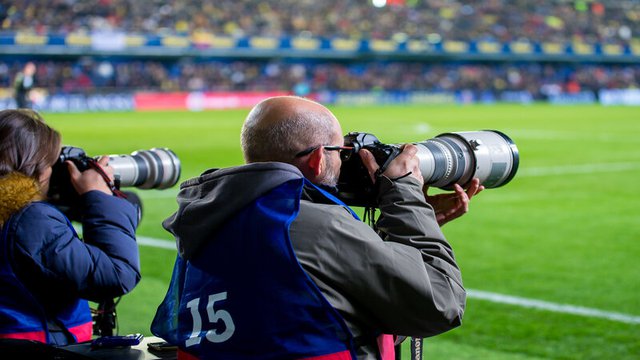
In the fast-paced world of sports, every moment counts. The roar of the crowd, the sweat on the athlete's brow, and the thrill of victory - these are the moments that sports photographers capture. They freeze the excitement of the game into still frames, allowing fans to relive the adrenaline rush and savour their favourite memories of sport for time immemorial. If you've ever considered becoming a sports photographer, or are considering studying a Master in Communication and Sports Journalism, this blog post is your guide to the thrilling world of sports photography.
A sports photographer is a professional who specialises in capturing moments in the world of sports. They are tasked with documenting sports events, whether it's an action-packed game in a stadium, a marathon, or even an athlete's candid moments. These photographers are responsible for preserving the history of sports and delivering compelling images to fans and media outlets.
Where does a sports photographer work?
Sports photographers can work in various settings, depending on the sports they cover and their role. The most common workplaces for sports photographers include:
To excel in the competitive world of sports photography, you need a unique set of skills. Here are some key abilities that can help you succeed:
The role of a sports photographer goes beyond simply pressing the shutter button. It involves:
One of the key aspects when it comes to working in any kind of sports journalism, whether that is print, radio, TV or online, is having some prior experiences. At Real Madrid Graduate School – Universidad Europea, as well as learning from experts in their fields, you will have the chance to take part in placements at Real Madrid and other leading sports organisations putting your skills into practice, gaining that valuable knowledge throughout the programme.
In addition, our campus is equipped with state-of-the-art technology, so you will be able to hone your skills in television studios with a set, production control, virtual set and video editing booths, radio studios complete with digital mixers and a content management system for current broadcasting, video cameras, photographic cameras and accessories for news coverage of different sports events.
Becoming a sports photographer is an exciting journey that combines a love for sports with the art of photography. With dedication, skill development, and passion, you can capture the heart of the game and share it with sports enthusiasts worldwide.